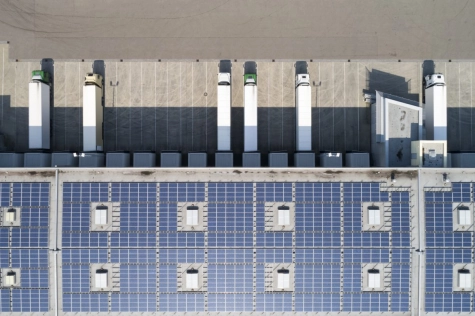Download the newsletter
ViDA takes advantage of the potential of data and digital tools to reduce the bureaucratic burden and simplify the taxpayer’s duties and it is a tool for effective tax collection. ViDA represents a set of measures aimed at clarifying, simplifying and modernization of EU VAT rules and modernization of reporting obligations related to cross-border transactions.
ViDA pursues three main goals:
- Introduction of real-time digital reporting for VAT purposes and e-invoicing;
- Address challenges in the area of the platform economy;
- The single VAT registration across the EU.
Once the legislative package of ViDa rules is approved, it will take effect gradually from January 1st, 2024 to January 1st, 2028.
The European Parliament’s Committee on Economic and Monetary Affairs voted on 23rd October 2023 for one-year delay to all three pillars of the ViDA measures. As a result of this, the negotiations on the ViDA package are expected to be postponed to the beginning of 2024. Subsequently the implementation of measures will be postponed from 2024 to 2025 and it is expected that the current schedule will be moved from year 2028 to 2030.
Introduction of real-time digital reporting for VAT purposes and e-invoicing
Current VAT reporting system must keep pace with the global trend of digitalization and provide real-time transaction data. This initiative aims to rejuvenation of the reporting systems used nowadays and achieve the harmonization of the existing and future reporting systems within the territory of EU member states.
The requirements for digital reporting of invoices vary among EU member states nowadays. In some of them only monthly reports of realised transactions are sent, other provide real-time invoices or invoice data, or submit tax and accounting information. On the contrary in some EU member states a non-digital tools for submitting data are still applied, such as lists of sales and purchases per customer or supplier and there is an obligation to submit VAT return.
The necessity of digital reporting for VAT purposes is also based on the need to effectively fight against VAT fraud. An example of this is the form of EC sales list, that has not been changed since its introduction in 1993. The EC sales list is unsuitable for modern digital reporting systems, not only because of its current form, but also because it only provides summary data for each taxpayer, rather than data about individual transactions. The conclusion was drawn from the public consultation of interested parties that the summary statement of the VAT could more effectively fight against VAT fraud within the EU, if the data were reported for individual transactions and closer to the real time of the realisation of transaction.
The first objective of ViDA proposal is based on two interconnected pillars:
- The obligation of e-invoicing;
- The obligation of digital reporting of data from e-invoices.
E-invoicing
From January 1st, 2024 (postponed to 2025):
- E-invoicing as a mandatory tool for invoice issuing.
- E-invoices issued, sent and received in structured format that will enable their automatic and electronic processing.
- The definition of e-invoices will be harmonised across EU member states.
- The possibility of using paper invoices only in situations allowed by member state.
- Issuance of electronic invoices will no longer be subject to the consent of the recipient.
From January 1st, 2028 (postponed to 2030):
- Time limit for generating e-invoices from cross-border transactions will be shortened to two working days from the day of realisation of taxable transaction. Currently, the invoice must be issued until 15th days of month following the month when the taxable transaction was realised.
- The adjustment of the time limit for e-invoices issuance should be a guarantee for exchanging information about taxable transactions on time and will help in the fight against VAT fraud.
Digital reporting
From January 1st, 2028 (postponed to 2030):
The modifications related to e-invoicing will cause the change in the way of digital reporting of data from e-invoices, including:
- A proposal to cancel summary invoices, what would cause a significant change in digital reporting. Summary invoices do not track completed taxable transactions individually so their next use would cause a duplicate in invoicing, what is in contrary with ViDA’s goals.
- A proposal of real-time digital reporting of data from e-invoices mandatory for all cross-border transactions within EU and optional for domestic transactions. So that means that the data from e-invoices should be sent to tax authorities until two days from completion of taxable transaction.
Challenges in the area of the platform economy
The next reason for ViDA package proposal are existing inequalities in the area of VAT caused by expansion of the platform economy. Typical examples of the platform economy are online platforms providing passenger transportation and short-term accommodation.
The operators of these platforms are mostly individual providers not considered as taxpayers or small businesses, whose transactions are exempt from VAT. Currently, however these providers are able to compete on the market with businesses registered for VAT, which leads to a distortion of economic competition.
Oher problems of platforms business are not enough clarified VAT rules modifying services provided by mentioned platforms or uncertain status of the original service provider. VAT rules so far introduced for platform businesses are not unified withing EU member states, and that could lead to e.g. incorrect determination of the place of supply which may lead to a double taxation or non-taxation.
The transfer of information from platform businesses to EU member states requires legal regulation too. The requirements for information processed by platforms differ among EU member states, especially with regards to the timing and format of the information provided. Additionally, there is no system for storing and making this information available, especially in connection with business-to-consumer (B2C) transactions.
The solution to the issues mentioned above would be the introduction of the model of the “deemed supplier”, under which platforms that have not charged VAT until now will charge VAT on the original service provided. The model will contribute to the equality of subjects operating in the digital and offline space providing short-term accommodation and passenger transportation services.
The introduction of the “deemed supplier” model will unify the application of the rule concerning the place of services provided, as well as the steps for sending information by platforms to EU member states.
Single VAT registration across the EU
The establishment of legislative measures of the ViDA package will reduce the need for multiple VAT registrations in the EU. Businesses whose transactions are taxable in other EU member states face excessive burdens and costs of complying with VAT regulations in those states.
- The special measure of the VAT known as the single point of contact schemes (“OSS”) or “IOSS”, the single point of contact for imports, will be extended. The application of the OSS and IOSS schemes has so far proven to be successful, but some of the supplies of goods and services are not included neither in OSS nor in IOSS regimes. These are deliveries of goods that do not meet the criteria for long-distance delivery of goods within the EU. The extension of the OSS and IOSS regimes will also consist of B2C supply of goods, including second-hand goods, works of art, collectables, and antiques.
- The plan is to extend the OSS and IOSS regimes to other B2C transactions as well, in case that the supplier is a non-resident taxpayer in a member state where VAT is payable (e.g. supply of goods with assembly and installation, taxable supply of goods without transport, etc.).
- The adjustments will also affect the call-off stock regime, that’s validity ends on 31.12.2024 and after this date it will be no longer possible to carry out any new stock transfers. The current version of call-off stock measure will be no more necessary, as the extension of the OSS regime will be applicable to cross-border movements of goods currently falling under the call-off stock regime.
The current status
The legislative package of ViDA measures is currently in the comment phase. EU member states have proposed more than 300 amendments, the most relevant are:
- Postponing of the effectiveness of the proposal by 24 months;
- Extension of the two working days deadline for IC transactions reporting;
- Non-cancellation of summary invoices;
- Exemption for small business in case of a digital platform;
- Flexibility for single VAT registration in case of second-hand goods.
Download the newsletter






